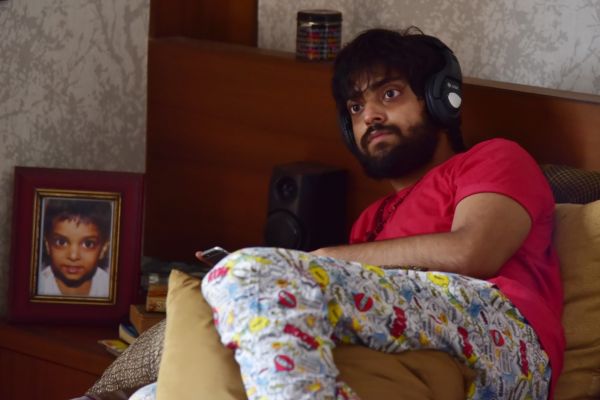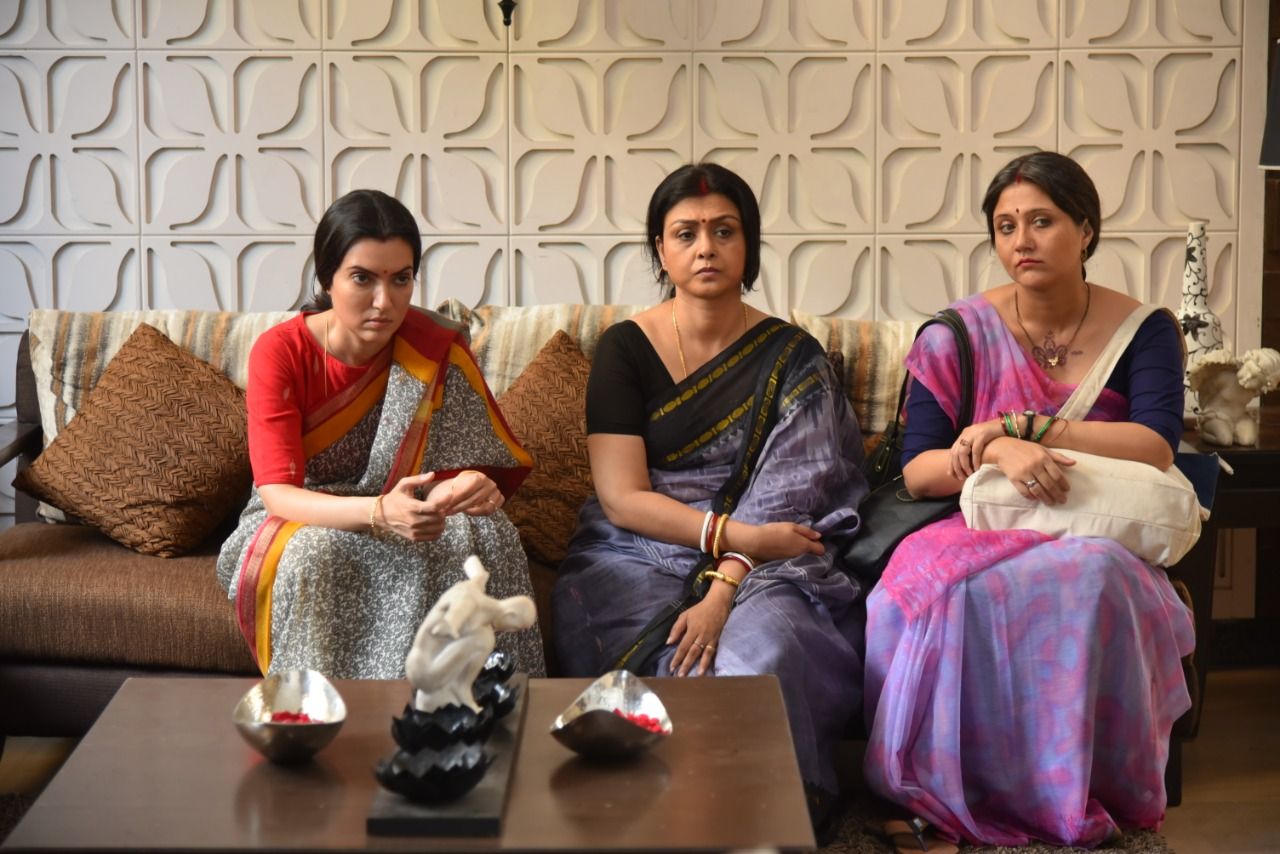Guldasta: It’s All Going to be ‘Okay Dear’
Subscribe to read full article
This section is for paid subscribers only. Our subscription is only $37/- for one full year.
You get unlimited access to all paid section and features on the website with this subscription.
Not ready for a full subscription?
You can access this article for $2, and have it saved to your account for one year.
After the much-deserved critical success of Abyakta, Arjunn Dutta returns with a feel-good fable of hope and empathy
Director: Arjunn Dutta
Cast: Arpita Chatterjee, Swastika Mukherjee, Debjani Chatterjee, Anubhav Kanjilal, Ishaan Mazumdar, Anuradha Mukherjee, Chhanda Karanji Chattopadhyay
Insomnia? Anaemia? Frigidity? A doped-out son? A cheating husband? A mother-in-law with bowel issues? Here comes Dolly Bagri – healthcare product salesperson who likes to underline her name in every conversation, who puts an earbud to the most innovative use I have seen – as a panacea for all ills.
Srirupa (Arpita Chatterjee, in an affecting performance) is battling multiple ailments – arising primarily from low self-esteem. Having sacrificed her potential as a classical dancer, she now lives in the hope that having a child will address all her problems. Of course, that’s not easy when her husband Arnab (Ishan Mazumdar) is having an affair with a colleague, and accuses her of being ‘frigid’. Arpita’s friend Renu (Debjani Chatterjee) has her own set of issues, with a young son Tukai (Anubhav Kanjilal) who lives in a perpetual dope-induced haze and a mother-in-law who is not all there. Enter Dolly Bagri, purveyor of hope, empathy and faith. Evoking memories of Hrishikesh Mukherjee’s Bawarchi, right down to the missing valuables towards the end, Guldasta’s seller of healthcare products proceeds to set things right for Srirupa and Renu.

.jpeg/WhatsApp%20Image%202020-10-26%20at%2011_45_02%20AM%20(1)__600x400.jpeg)
Tags
About the Author
Shantanu Ray Chaudhuri is either an 'accidental' editor who strayed into publishing from a career in finance and accounts or an 'accidental' finance person who found his calling in publishing. He studied commerce and after about a decade in finance and accounts, he left it for good. He did a course in film, television and journalism from the Xavier's Institute of Mass Communication, Mumbai, after which he launched a film magazine of his own called Lights Camera Action. As executive editor at HarperCollins Publishers India, he helped launch what came to be regarded as the go-to cinema, music and culture list in Indian publishing. Books commissioned and edited by him have won the National Award for Best Book on Cinema and the MAMI (Mumbai Academy of Moving Images) Award for Best Writing on Cinema. He also commissioned and edited some of India's leading authors like Gulzar, Manu Joseph, Kiran Nagarkar, Arun Shourie and worked out co-pub arrangements with the Society for the Preservation of Satyajit Ray Archives, apart from publishing a number of first-time authors in cinema whose books went on to become best-sellers. In 2017, he was named Editor of the Year by the apex publishing body, Publishing Next. He has been a regular contributor to Anupama Chopra's online magazine Film Companion. He is also a published author, with two books to his credit: Whims – A Book of Poems (published by Writers Workshop) and Icons from Bollywood (published by Penguin Books).







.jpg)




